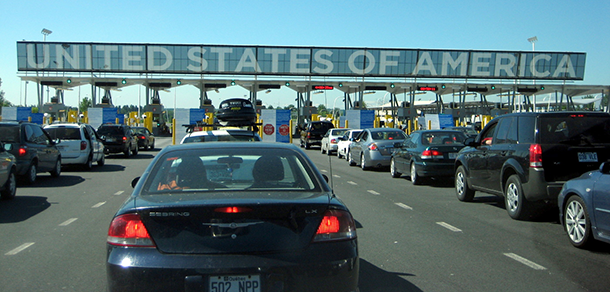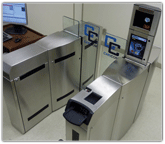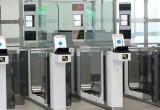Can self-service iProov facial recognition secure U.S. land crossings?
11 May, 2018
category: Biometrics, Government
U.K.-based iProov facial recognition technology will help the U.S. Customs and Border Protection agency improve operations and security at unstaffed land border crossings.
IProov’s biometric authentication technology is anchored to a “cloud-based facial biometric verification system that can be accessed via a user’s mobile phone,” the company says in a statement. Among the main selling points for iProov is that its facial recognition technology can detect when travelers try to “spoof” a biometric authentication system—such as when a person holds a digital image up to the device camera, or otherwise tries to trick biometric sensors.
U.S. border authorities reportedly will use iProov biometric authentication at some 300 land crossings
The technology and app developed by iProov requires travelers to use their mobile devices to take short videos of their faces. The iProov technology employs light detection analysis techniques to guard against facial recognition fraud.
iProov facial recognition tech uses light patterns to boost security
“A unique one-time color sequence code is generated in iProov’s servers and sent to the user’s device,” the company explains. “As the authentication begins, the user’s screen flashes for 2.5 seconds with the unique color sequence,” which iProov calls “Flashmarks.” The Flashmarks “illuminate and reflect off the user’s face [while] a video is streamed back to iProov’s servers.” The company “compares the user’s Flashmarked image against their enrollment image and images of every prior or subsequent successful authentication.”
The iProov facial recognition technology works with existing Customs and Border Patrol systems, “on which travelers’ details are pre-registered,” the company says. “In the run up to arrival at the U.S. border, whether at home or en route, travelers would be able to self-serve the document check that normally happens at the point of border crossing, by authenticating themselves securely to their pre-registered photo, via their mobile phone.”
U.S. border authorities reportedly will use iProov biometric authentication at some 300 land crossings. The iProov contract with the U.S. Department of Homeland Security is worth $190,000 in the first phase, with the total value potentially reaching at least $800,000.
According to iProov this deal marks the first time that Homeland Security’s Silicon Valley Innovation Program—charged with finding “new technologies that strengthen national security”—has awarded a contract to a non-U.S. firm.
IProov was founded in 2011. The company says it has 10 patents in the U.S. and U.K.




